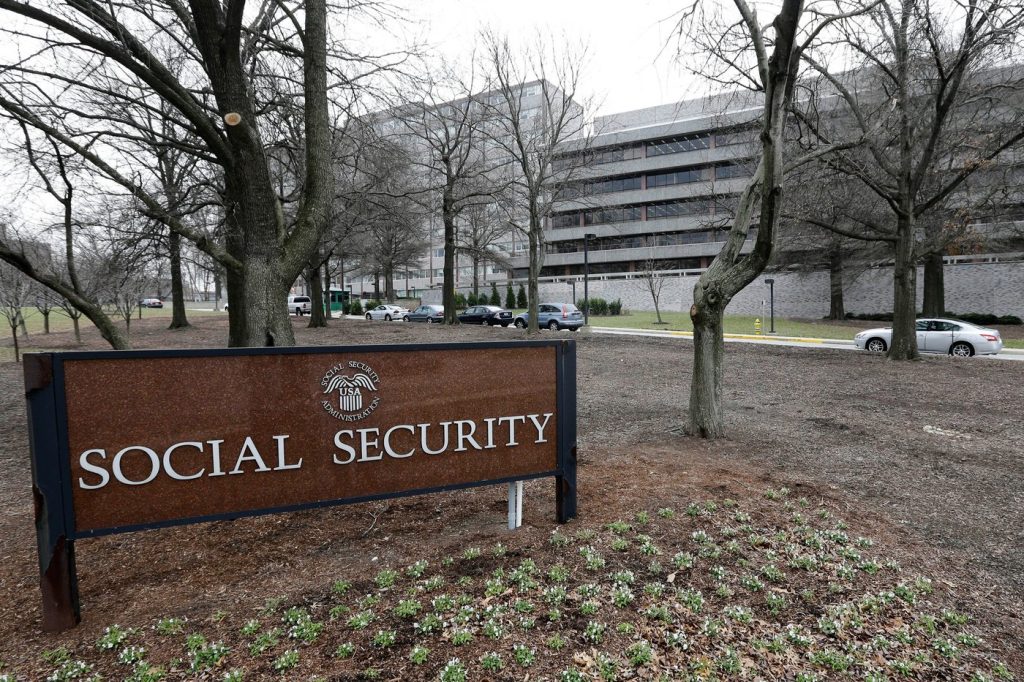WASHINGTON (AP) – The ongoing government shutdown is causing a delay in announcing the annual Social Security cost-of-living adjustment (COLA) for millions of beneficiaries. Initially set for Wednesday, the 2024 COLA announcement has now been rescheduled to October 24. This adjustment is typically aligned with the September Consumer Price Index (CPI), which also has yet to be released due to the shutdown.
The Social Security Administration modifies its benefits annually based on inflation rates. The postponement of the COLA announcement is the latest indication of how the government shutdown, which has entered its third week with minimal progress toward resolution, is complicating financial planning for many Americans. Projections from the Senior Citizens League and AARP estimate a COLA increase of roughly 2.7%. Approximately 70.6 million individuals, including retirees, disabled persons, and children, rely on Social Security benefits.
Beneficiaries of the Social Security Administration have raised concerns that the anticipated increase will fall short in addressing the rising cost of living. Sue Conard, a 75-year-old retired nurse from La Crosse, Wisconsin, who is also a recipient of SSA benefits, participated in lobbying efforts at the U.S. Capitol with other retirees. They sought to push for significant advancements in health care protections and changes to Social Security benefits. Conard criticized the current methodology used to calculate COLA, asserting that the standard CPI does not adequately reflect expenses relevant to older Americans.
In her remarks outside the Longworth House Office Building, Conard stated, “The issue of how the COLA is determined is flat-out wrong because health care is not factored into the CPI.” Some lawmakers have proposed legislation to shift the calculation method to the Consumer Price Index for the Elderly (CPI-E), which takes into account spending patterns specific to older Americans, particularly concerning health care, food, and medicine.
Legislative proposals by a group of Democratic lawmakers aim to adjust the COLA calculation to the CPI-E. Last session, Senator Bob Casey, a Democrat from Pennsylvania, introduced a bill to amend the COLA calculation, but it did not gain traction in the Senate Finance Committee.
AARP CEO Myechia Minter-Jordan emphasized the importance of COLA, stating that it is “not just a source of income – it’s a lifeline of independence and dignity” for millions of older Americans. Nonetheless, even with an adjusted COLA, many individuals still struggle to manage their basic expenses effectively.
Vanessa Fields, a 70-year-old former social worker and AFSCME member from Philadelphia, shared her financial concerns, noting that she spends approximately $1,000 monthly on groceries, substantially more than in previous years. She expressed worry that without legislative intervention, many will face dire financial situations due to inadequate COLA adjustments.
The Social Security Administration is expected to inform recipients about their updated benefit amounts starting in early December. A spokesperson for Social Security, who spoke anonymously, clarified that retirement and Supplemental Security Income benefits would be adjusted beginning January 1, 2026, without delay despite the ongoing governmental funding lapse.
This delayed announcement of the COLA comes at a time when the national social insurance program is projected to encounter significant financial shortfalls in the coming years. The annual report by the Social Security and Medicare trustees, released in June, indicated that the program’s trust fund is anticipated to deplete its resources for full benefit payments by 2034, a year earlier than last year’s estimate. If the trust fund is exhausted, benefits could be reduced to 81% of scheduled payments.
Additionally, the Social Security Administration has seen substantial reductions in staffing, having laid off at least 7,000 employees from its existing workforce of 60,000 earlier this year. This downsizing has resulted in increased pressure on remaining staff to process claims and respond to rising inquiries from beneficiaries.











